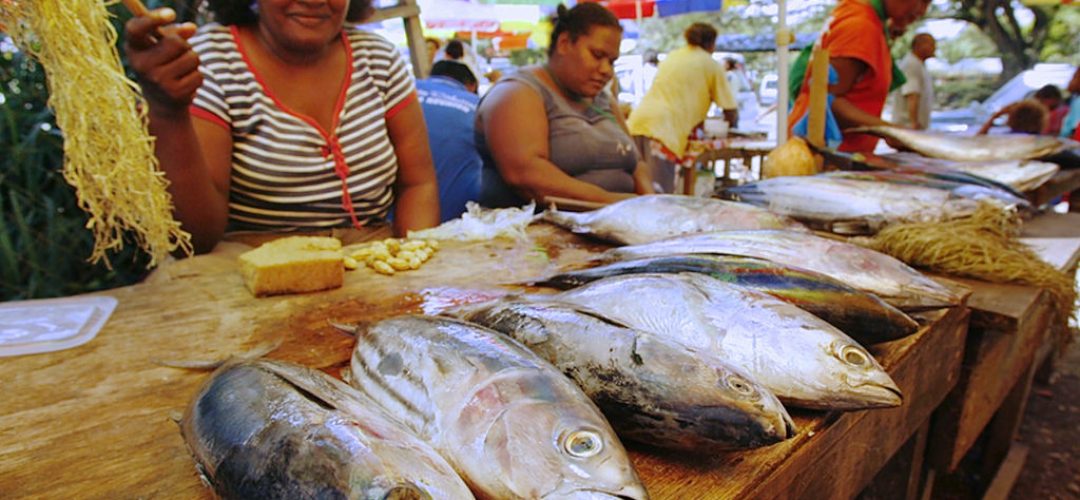Malnutrition Threatens Solomon Islands

By John Follet
Solomon Islands is classified as a country threatened with high rates of malnutrition that may cause a range of NCDs.
According to the World Health Organisation, the term malnutrition covers two broad groups of conditions. One is under nutrition- which includes stunting (low height for age), wasting (low weight for height), underweight (low weight for age) and micronutrient deficiencies or insufficiencies (a lack of important vitamins and minerals). The other part of it refers to overweight; obesity and diet- related non communicable diseases such as heart disease, stroke, diabetes and cancer.
The effects of it really touch on health and survival of the young. Evidence has shown that it can lead to poor brain development with long-lasting harmful consequences including diminished mental ability and learning capacity, poor school performance in childhood, reduced earnings and increased risks of nutrition related chronic diseases such as diabetes, hypertension, and obesity in future.
In June this year, during the launch of the Solomon Islands national statistics development strategy report, poor nutritional intake was identified as one of the top challenges in the country.
The Solomon Islands Government Statistician Mr Douglas Kim reveals that poor child nutritional was alarming high in the country, where 32 per cent of children less than five years of age were being stunted, while 10 per cent of them were severely stunted. 
DEPUTY DIRECTOR-RESEARCH at the Pacific Research Centre for the Prevention of Obesity and Non-Communicable Diseases (C-POND), Dr. Jillian Tutuo Wate, highlighted that malnutrition affects proper nutrition in human development, so if individual is not taking enough nutrients to meet physiology function which the body needs it will affect the overall body of a person.
“For instance, under nutrition, if the baby is born underweight its growth development will not meet the growth optimum thus will result in having higher risk of dying during birth and also having high risk of infection, and during the first five years the development will be affected.
“Malnutrition is not a health issue alone; it has to be address across sectors, government sectors as well as private sectors. That is to make sure at the government level to address food security. When refer to food security people having access to health nutritious food at all time so they can be secure in that way, thus the government need to be responsible in providing that environment which they call it a healthy food environment in which food is available thus people can make choices,” she said.
She reveals that the 2016 – 2025 goals are to aimed at securing policy commitments that result in measurable action to address all forms of malnutrition.
“The aim is to ensure all people have access to healthier and more sustainable diets to eradicate all forms of malnutrition worldwide,” she said.
Solomon Islands Assistance Health Promotion Officer Nylyn Trasel said given the complexity of (government, community, household, individual levels) – agencies need to engage in multi- sectoral approach. Food and nutrition is a cross-cutting issue across many government ministries like agriculture, education, marine and fisheries, environment, finance, trade as well as private sectors and NGOs.
“Strengthen multi- sectorial approach to address malnutrition in Solomon Islands, this means relevant ministries need to prioritise food security, food safety and nutrition,” she said.
Carol Magreth, a third year Diet and Nutrition student at the Fiji National University said that strengthening and supporting breastfeeding and complementary feeding practices (birth to 6 months) and complementary feeding including a balance diet (energy, protein, minerals and vitamins) is a must. It even starts before that…at preconception, a young girl must have a healthy diet and lifestyle so she has a healthy pregnancy, proper growth on foetus, health delivery and healthy baby.
She said there should be a policy in supporting healthy school food policies or canteen guidelines to ensure children have healthy food choices in schools or a bring in healthy school lunches.
“At household level, parents should be educated on how to plan and prepare healthy nutritious meals for their families,” she said
Dr. Jillian said, government policy plays a key role in encouraging a health food environment in any country. Focus should be at imports of unhealthy food and drinks (junk foods) should be controlled. A strategy is to hike up taxes on such food or drinks to encourage less consumption of these types of food. It has seen working in other countries so it can work in Solomon Islands too. Not only in imports, but local manufacturing of these unhealthy food and beverages must be monitored and control by government relevant sectors.
“There should be an agriculture policy focussing on encouraging Solomon Islanders or local farmers to grow crops with higher nutrition-value and support the breeding of live stocks, poultry, fisheries and marine resources etc. to meet protein needs in the country.
“NCDs, is a major killer in Solomon Islands. The cost associated in managing, treating NCD for the government place increasing pressure on government budget in Solomon Islands. Although there was a decline in the public health expenditure allocated to health as a percentage of GDP from about 21 per cent in 2002 to 12 per cent in 2013, the recent figure exceeds the global public health expenditure average of 6.6 per cent for lower-middle income countries. Thus it has implication on long-term sustainability,” she said.











No Comments
No comments yet. You should be kind and add one!